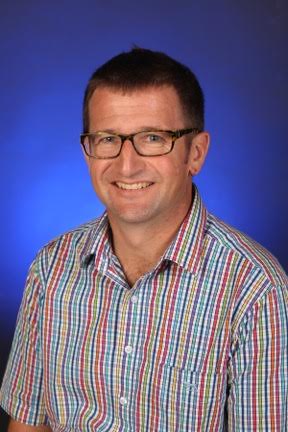Podcast: Play in new window | Download
Subscribe: Apple Podcasts | RSS
Dr. Vic Arcus is a Professor of Biological Sciences at the University of Waikato in New Zealand. He received his Bachelor’s and Master’s degrees in Organic Chemistry from the University of Waikato and his PhD in Molecular Biology from Cambridge. Afterward, Vic became a fellow of Trinity College, and then served on the faculty at Auckland University before returning to Waikato where he is today. Vic is here with us today to tell us all about his journey through life and science.
People Behind the Science Podcast Show Notes
Life Outside of Science
Vic’s interests outside of science include music and exercise. He is an amateur triathlete and also takes a piano lessons once a week.
The Scientific Side
In the lab, Vic works as a biochemist to understand the function of enzymes both within and outside of cells. Lately, he has also been studying the evolution of enzymes.
A Dose of Motivation
“You have brains in your head. You have feet in your shoes. You can steer yourself any direction you choose.” by Dr. Seuss.
What Got You Hooked on Science?
Growing up, he was inspired by David Attenborough and the BBC Series Life on Earth. Going through school, Vic assumed he was going to be a lawyer, a doctor, or an engineer, so he never considered becoming a scientist before heading off to university. Once there, he started with general classes in chemistry, math, and philosophy that really sparked his interest in science.
The Low Points: Failures and Challenges
After being awarded his PhD from Cambridge, Vic declined a prestigious postdoctoral fellowship to return to New Zealand for an opportunity there. He had accepted a postdoctoral fellowship in a government research agency that was being completely restructured which made for a really rocky transition. It got so bad that he even considered leaving science and going back to law school to pursue a completely different career.
A Shining Success!
Vic considers his idea of scaling up their thermodynamics model from enzymes to large ecosystems as one of his greatest achievements. After having his paper on the subject rejected by some of the best journals, he finally got lucky with his fourth journal submission. This journal initially rejected the paper, but a thoughtful letter to the editor explaining their difficult position of being at the intersection of multiple fields got the paper in the hands of reviewers. With three glowing reviews, the paper was immediately published.
Book Recommendations
The Luminaries by Eleanor Catton, Capital in the Twenty-First Century by Thomas Piketty
Most Treasured Travel
During a conference in Santa Fe, he was able to visit Los Alamos and the Los Alamos Museum which was home to the Manhattan Project in the 1940s. This had a really big impact on him because it brought to light the tensions that exist between science, politics, and global conflict. At the time Vic was also reading the biography of Richard Feynman who had worked there, and this provided an even deeper perspective.
Quirky Traditions and Funny Memories
Vic’s laboratory has a tradition of celebrating each student’s PhD completion with champagne and a gift of the book Oh, The Places You’ll Go by Dr. Seuss. His lab’s tradition of giving this book and a general love of sharing baked goods came from his fantastic lab manager.
Advice For Us All
Spend the one third of your life sorting out your ideas and what you want to do. Spend the second third of your life doing it. The final third of your life should be spent giving back and mentoring others. Also keep in mind that patience and diligence are the keys to achieving what you want in this world.
Guest Bio
Vic leads a group of researchers looking at the molecular biology of tuberculosis. Tuberculosis has been described by the World Health Organization as a global epidemic. It kills more people every year (~3 million) than any other single infectious disease. New Zealand has relatively low incidence rates of tuberculosis but vigilance is still required even here. Vic is also very interested in the thermodynamics of enzyme function. He and his friend Louis Schipper have developed a theory that they have called Macromolecular Rate Theory (MMRT) to describe the temperature dependence of biological rates from enzymes to ecosystems. Vic did his undergraduate science degree at the University of Waikato and then flew off to Cambridge UK to do a PhD in molecular biology. He then spent eight years at Auckland University before returning “home” to Hamilton in 2006. Vic likes music and football (soccer). He likes to swim, bike and run. Up until recently, he and his wife Fiona, undertook these activities with their two kids, Leon and Grace. Unfortunately for Fiona and Vic, the kids have got faster and they have got slower.

Leave a Reply